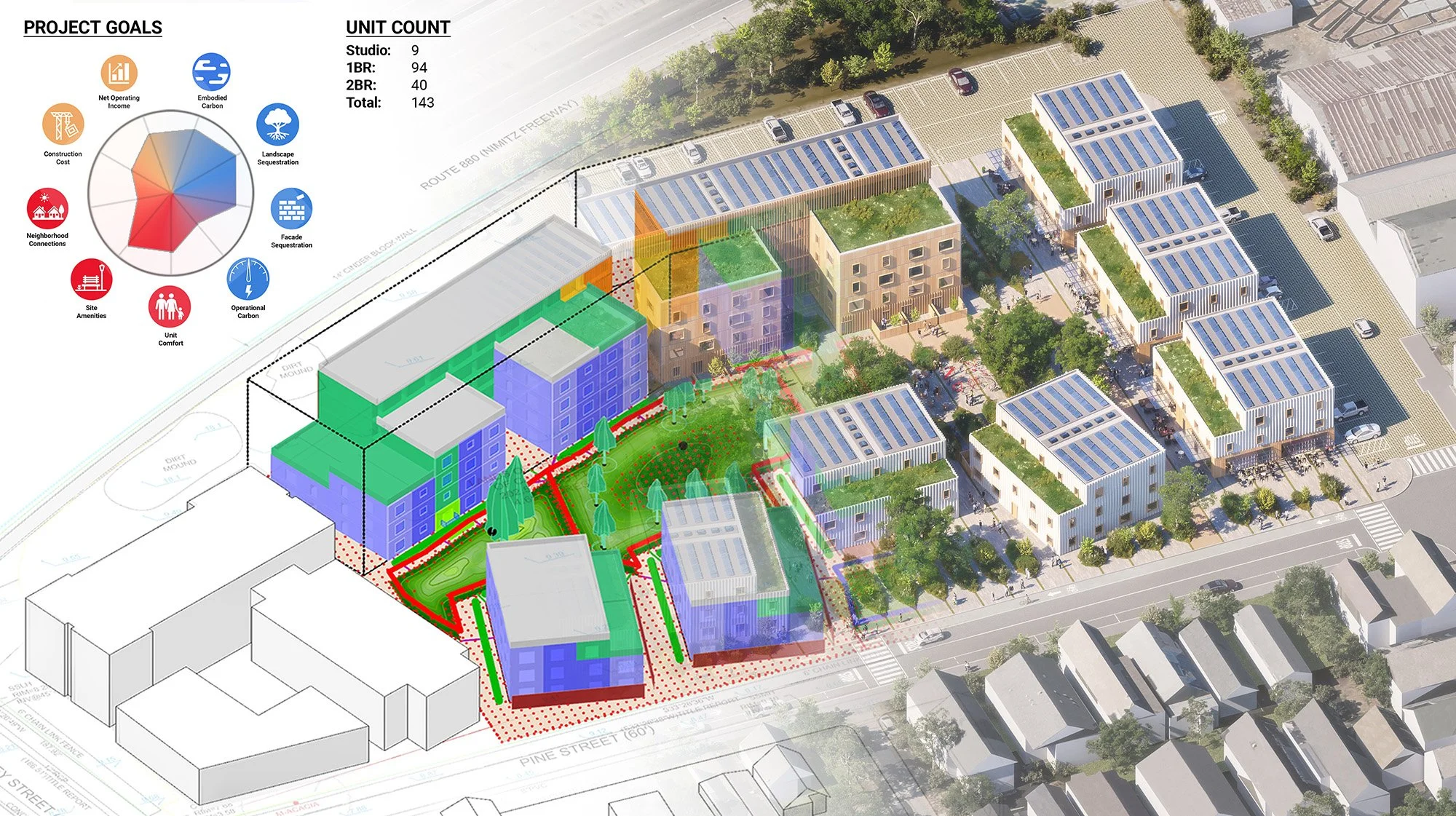The future of affordable housing may be modular, AI-driven, and made of mushrooms
The Phoenix: a mythological bird that symbolizes resurrection, rebirth, and life after death. Demolished in 1989, The Phoenix Ironworks Steel Factory left a five-acre hole in West Oakland, Calif. After sitting vacant for nearly three decades, the site will soon become utilized again as The Phoenix rises from the ashes—this time in the form of 316 affordable housing units.
AI-Powered Design Optimization
The integration of AI, particularly Autodesk Forma, has been pivotal in optimizing the design and layout of the housing units.
AI tools allowed for rapid exploration and adjustment of design options, optimizing factors like cost, carbon footprint, and noise reduction.
This technology reduced the design phase from two weeks to just six hours, demonstrating significant time-saving benefits.
Modular Construction and Biomaterials
The project employs volumetric modular construction, enabling rapid assembly of units in just 10 days.
MycoComposite, an innovative biomaterial derived from mushrooms, forms the core of the building’s façade, offering structural integrity, insulation, and fire resistance while being environmentally friendly.
This approach reduces construction time and the project's carbon footprint, making it eligible for state incentives and further solidifying its role as a model for future developments.
Summary
Embracing AI and modular construction can significantly reduce costs, time, and impact in housing projects.
The use of sustainable biomaterials, like MycoComposite, not only supports environmental goals but also enhances building performance and safety.
The Phoenix project serves as a blueprint for how technology and innovative materials can revolutionize affordable housing, offering insights into the future of real estate development.

